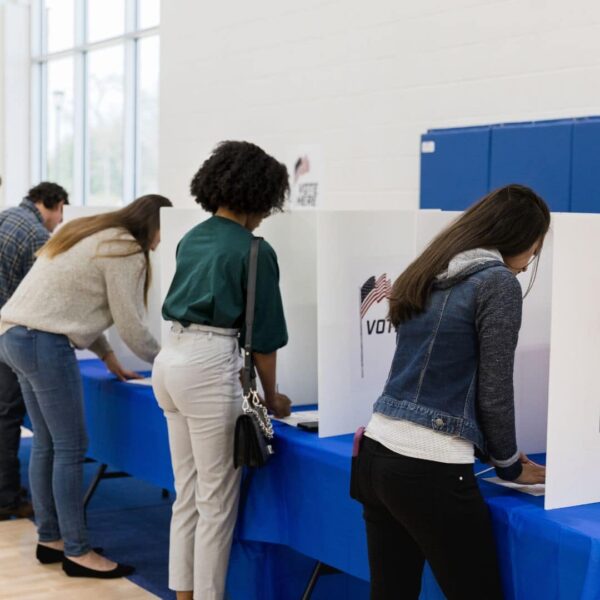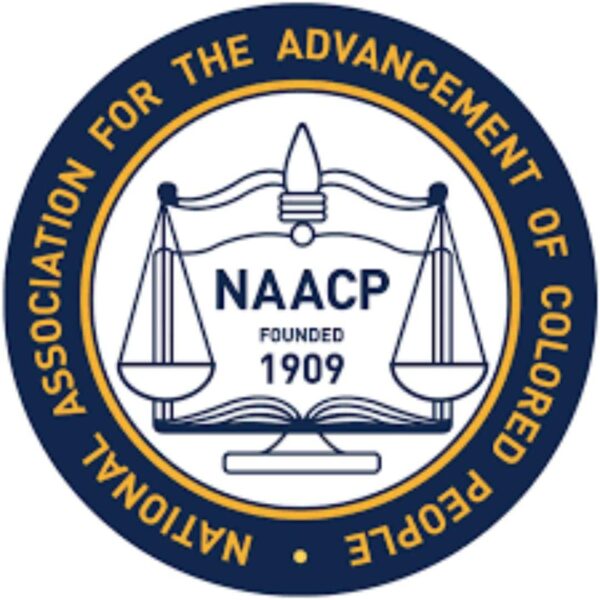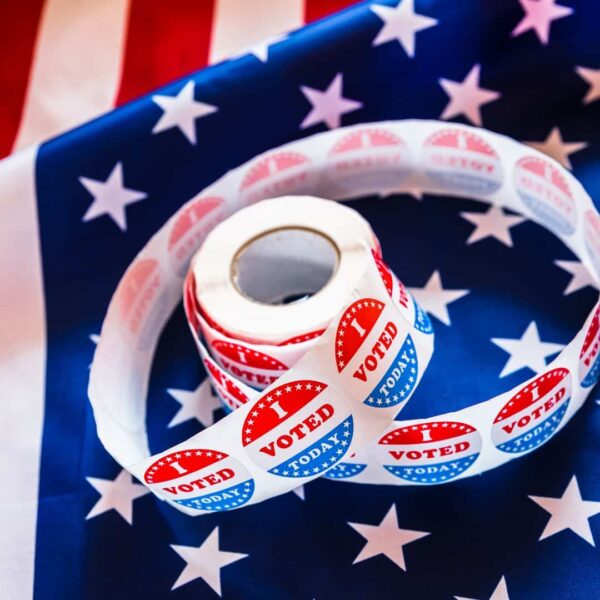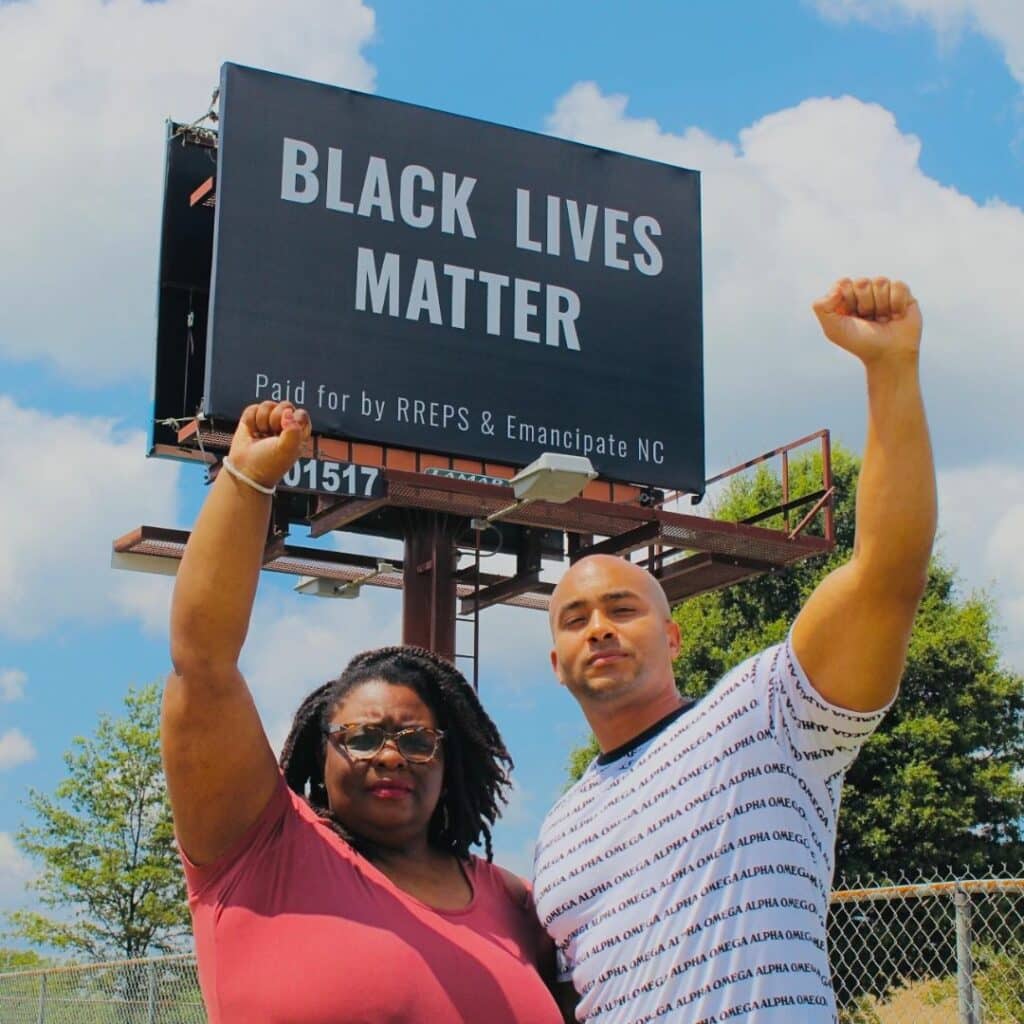
VoteRiders Works With Justice Reform Groups to Empower Returning Citizens in North Carolina
VoteRiders is proud to work alongside many outstanding organizations to expand and protect the voting rights of Black Americans. In honor of Black History Month, we’re celebrating and uplifting the critical work we’re undertaking alongside our powerful partners to build a more inclusive and equitable democracy.
In this partner highlight, VoteRiders’ Digital Communications Coordinator speaks with Kerwin Pittman, Director of Policy and Programming at Emancipate North Carolina, and Founder and Executive Director of Recidivism Reduction Educational Program Services, about the important work they’re doing in partnership with VoteRiders to advance the rights and livelihoods of justice-impacted individuals in North Carolina. — FEBRUARY 27, 2024
Tell me about yourself and your role at Emancipate North Carolina and Recidivism Reduction Educational Program Services.
I’m the Director of Policy and Programming at Emancipate North Carolina so I help manage different projects and programs, oversee the implementation of those programs, and play a front responder role to different instances that may happen.
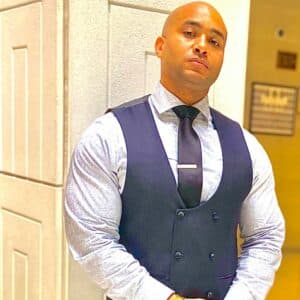
Emancipate North Carolina is an organization that tackles structural racism through a multitude of different methods and fights structural racism in a multitude of different arenas with these methods — including litigation, organizing, advocacy, and legislation.
I am also the Founder and Executive Director of Recidivism Reduction Educational Program Services, RREPS. I did 11 and a half years in the carceral system. I was incarcerated from the age of 19 to the age of 30 — about to be 31. When I came home I realized that a lot of the people I had become friends with in prison didn’t have enough resources after being released. They would ask me how to do certain things and wanted to know how I was able to succeed after I was released — they wanted to know how to find a job and different things of that nature.
Most importantly, there weren’t enough resources being distributed from a justice-involved and justice-impacted lens.
Organizations didn’t have any staff members who had actually been in the carceral system, and if you’ve never been in the carceral system, it’s small things that you’re definitely not going to relate to — like the sound of keys, like count time, like being conditioned to do certain things at certain times.
So this ultimately led me to start my own nonprofit, which I was already thinking about while I was incarcerated and had already kind of crafted a framework for it. It took somebody like me, who’d been in prison and had that lived experience, to reach people. Plus I had made friends or acquaintances with a plethora of people who were coming home right after me and I just wanted to help them.
So RREPS is an organization that tackles recidivism reduction from a social justice lens. What that actually looks like is we provide direct services and advocate for policy changes inside different institutions to curb the recidivism rate.
We’re entering a very consequential election season. What is driving North Carolinians to the polls this year?
A multitude of issues are driving individuals to the polls because they’re now seeing that certain basic rights can be taken away from them. For example, in April 2023, the North Carolina Supreme Court overturned an order that granted formerly incarcerated individuals voting rights, stripping an estimated 56,000 Americans of their freedom to vote.

We need to educate communities on how X plus Y equals Z outcome, and explain what they can do to change that outcome. This is how we can get individuals to look at their material conditions and realize that these conditions are contingent upon the leaders who represent them.
In North Carolina, incarcerated individuals lose their right to vote until they’ve completed their sentence, including probation or parole. Is Emancipate North Carolina or RREPS doing any work to advance voting rights restoration for justice-involved citizens?
Luckily, Emancipate North Carolina launched a statewide campaign and we were able to register 13,000 people within the 100-day registration period before the Court took away the voting rights of returning citizens.
Now we have close to 20,000 people, I believe, who will be completing their probation and will therefore be eligible to register and participate in this year’s upcoming elections. We’re rolling out a massive campaign to register these people to vote.
We’re also now in the process of preparing for Lobby Day, where justice-involved and justice-impacted people will go to the General Assembly to explain and advocate for legislation surrounding the Second Chance Act, which allows people to have their records expunged.
Returning citizens often face steep challenges in obtaining identification upon release. Why is it often so difficult to secure ID and what impact does it have on these individuals and their families?
It’s hard for justice-impacted individuals to get ID because there’s a gap in the system. The system locks you up and makes it extremely difficult for you to gather your items — like a birth certificate or other items you need to acquire identification. The system doesn’t prepare you beforehand and there is a lack of coordination on the side of the institution.
It can be really difficult if you’re someone who doesn’t have family support, you don’t know where your birth certificate is, or maybe you never even had an ID before because you were just dealing with different things.
It can be extremely difficult when individuals come home after being incarcerated because not only do you have the barrier of having a felony on your record, but if you don’t have ID, you also can’t get a job, you can’t get housing, you can’t get government benefits, and you can’t vote.
In 2023, North Carolina reinstated a new voter ID law. Now voters are asked to show a photo ID to vote. However, if someone doesn’t have one, they can still vote if they complete and sign an ID exception form.
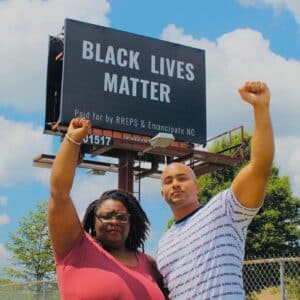
And it’s a multitude of factors that contribute to the detriment of a family, right? If I’m coming home after being incarcerated and I’ve become the main provider for my family, but I don’t have identification, now I have to work under the table, which ultimately may lead me back into the justice system. So this is why it’s extremely important that returning citizens get their ID right away.
Luckily, a new Executive Order was recently issued and one of the goals of the Executive Order is to coordinate with the DMV to try to fill the gap, to make it easier for returning citizens to secure ID.
Luckily for me, this wasn’t a hurdle that I faced — I had family support — but I saw a lot of other people face this. I was born overseas in Germany, so my family reached out to the U.S. consulate in Germany to secure my birth certificate. But a lot of people don’t have that type of support. Plus, the DMV was rolling out a pilot program at the prison I was at. They came to our facility to help people who were being released within a certain time frame to secure their identification and prepare to take their driver’s license test. So when I came home I was able to just go to the DMV within the first week home, take the driving test, and then I had my license. But the stars don’t align like that for a lot of people.
When and why did Emancipate North Carolina and RREPS connect with VoteRiders? How are you working together to equip justice-impacted individuals with the ID they need?
Those returning from the carceral system who join RREPS do not have identification the majority of the time, so it’s hard for them to do a lot. VoteRiders has been an awesome partner in helping individuals secure identification so they can participate in the electoral process and so much more.
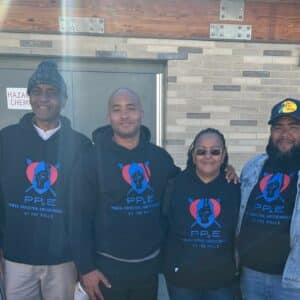
I connected with VoteRiders’ National Voter ID Assistance Director, Pam, at North Carolina’s State Reentry Council Collaborative, back in 2019 I think. We were sitting beside each other and I think someone introduced us and the rest is history. VoteRiders has been an awesome partner and Pam has been extremely responsive.
If there’s something I can do in partnership with VoteRiders, I’m doing it. VoteRiders is gold in my book.
So whenever I’m working with someone who needs ID assistance, I’ll reach out to somebody at VoteRiders — normally that will be Pam — and I’ll explain what their situation is. Then I’ll connect the individual to VoteRiders and VoteRiders will take it from there. Then I stay in touch with VoteRiders so I can stay updated on whether or not they were able to secure their identification.
For example, VoteRiders helped members of our community, like Sean, get their ID. VoteRiders helped him set up a DMV appointment and even get free transportation to and from the appointment, which I was blown away by. Before all of this Sean couldn’t get a job, he couldn’t apply for housing or food benefits, and he couldn’t vote.
There’s so much more he can do now that he has his ID, thanks to VoteRiders.

